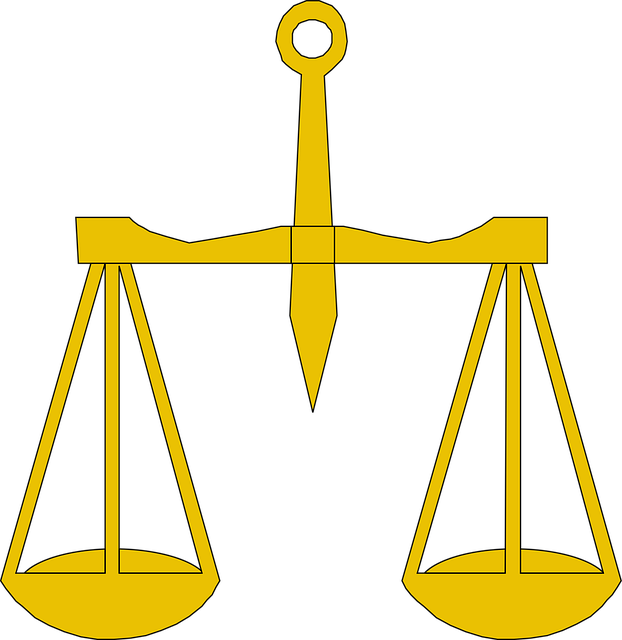Antitrust laws, enforced by agencies like the FTC and DOJ, promote fair competition by preventing market restriction and price control. Case Studies in Securities Exchange Regulation reveal anti-competitive behaviors, leading to penalties or charge dismissal. High-profile scandals like Enron and Libor rate rigging have shaped financial regulations, emphasizing the need for transparency and accountability. Antitrust violations disrupt free markets, harming consumers with higher prices and reduced quality. Companies can mitigate risks through robust internal controls, compliance programs, and regulatory vigilance.
“Explore the intricate world of antitrust violation cases, where powerful businesses clash with regulatory bodies. This article delves into the enforcement of antitrust laws, focusing on high-profile securities exchange manipulation scandals. We analyze case studies that highlight the far-reaching impact on both businesses and consumers, and discuss preventive measures taken by regulators. By examining these scenarios, we provide valuable insights into the dynamic landscape of securities exchange regulation, offering a comprehensive understanding through real-world examples.”
- Understanding Antitrust Laws and Their Enforcement
- High-Profile Cases of Securities Exchange Manipulation
- The Impact on Businesses and Consumers Alike
- Preventive Measures and Regulatory Responses
Understanding Antitrust Laws and Their Enforcement

Antitrust laws are designed to promote fair competition in markets by preventing businesses from engaging in practices that restrict trade or leverage their power to control prices. These laws are enforced by regulatory bodies, such as the Federal Trade Commission (FTC) and the Department of Justice (DOJ) in the United States. Understanding these regulations is crucial when examining case studies in securities exchange regulation, as they provide insights into how companies can navigate legal boundaries and avoid violations.
The enforcement process involves investigating reported or suspected anti-competitive behaviors, which can range from price-fixing and market division to monopolistic practices. If found guilty, companies may face penalties, including fines and structural remedies like divestments. Interestingly, in some cases, defendants may achieve a complete dismissal of all charges if they can prove cooperation with regulators and offer substantial evidence of their commitment to compliance. This approach reflects the evolving strategies in tackling white collar and economic crimes, showcasing an unprecedented track record of successful prosecutions and corporate responsibility.
High-Profile Cases of Securities Exchange Manipulation

In the realm of Case Studies in Securities Exchange Regulation, high-profile cases of securities exchange manipulation stand out as pivotal moments that have shaped financial markets and legal precedents. These incidents often involve intricate networks of deception, where influential figures exploit market mechanisms for personal gain. One notable example is the Enron scandal, which exposed accounting fraud on an epic scale, ultimately leading to the bankruptcy of the once-mighty energy company. This case not only underscored the importance of robust regulatory oversight but also prompted significant reforms in corporate governance and financial disclosure practices.
Another compelling instance is the manipulation of Libor (London Interbank Offered Rate), where major banks colluded to rig interest rates, affecting trillions of dollars in global lending. The ensuing legal battles resulted in substantial fines and criminal charges against individuals involved, demonstrating the reach of general criminal defense strategies in holding responsible parties accountable. These case studies serve as a stark reminder of the potential consequences of antitrust violations, particularly in the complex world of securities exchange, and have prompted regulatory bodies worldwide to enhance transparency and protect both corporate and individual clients from such manipulative practices.
The Impact on Businesses and Consumers Alike

Antitrust violation cases have far-reaching implications for both businesses and consumers. When a company engages in anti-competitive practices such as price fixing, market allocation, or abuse of dominant market position, it disrupts the free market dynamics that underpin fair competition. These actions can lead to higher consumer prices, reduced product quality, and limited innovation.
In case studies involving securities exchange regulation, businesses found guilty of antitrust violations often face severe penalties, including substantial fines, asset seizures, and even criminal charges for top executives. This not only impacts the respective business’s financial health but also damages its reputation, making it challenging to secure future investments or partnerships. Consumers, on the other hand, benefit from increased competition and lower prices as a result of antitrust enforcement. An unprecedented track record of successful prosecutions sends a strong message that anti-competitive behavior will not be tolerated, fostering an environment conducive to open markets and fair trading practices.
Preventive Measures and Regulatory Responses

Preventive measures play a pivotal role in mitigating antitrust violation cases. Companies across the country have been proactive by adopting robust internal controls and compliance programs to safeguard against such infringements. These initiatives involve rigorous training for employees on competition laws, clear communication of ethical standards, and the establishment of independent oversight committees. Regular audits and transparency in decision-making processes further bolster these defenses.
Regulatory responses to antitrust violations have evolved over time, as evidenced by case studies in securities exchange regulation. Authorities now employ a mix of enforcement actions, including monetary fines, divestitures, and structural remedies. The focus is not just on penalizing wrongdoers but also on restoring market competition and ensuring fair practices. An unprecedented track record of successful prosecutions has emerged, reflecting the enhanced vigilance and comprehensive strategies employed by regulatory bodies to combat white-collar and economic crimes.
Antitrust violation cases, particularly those involving securities exchange manipulation, highlight the delicate balance between fostering market competition and protecting consumers. Through case studies like these high-profile incidents, regulatory bodies can refine their strategies to prevent future manipulations. By understanding the impact on businesses and consumers alike, we can strengthen antitrust laws and ensure fair practices in the financial sector. Integrating preventive measures and prompt regulatory responses is key to maintaining a robust and transparent market environment, as evidenced by ongoing efforts in the realm of securities exchange regulation.






